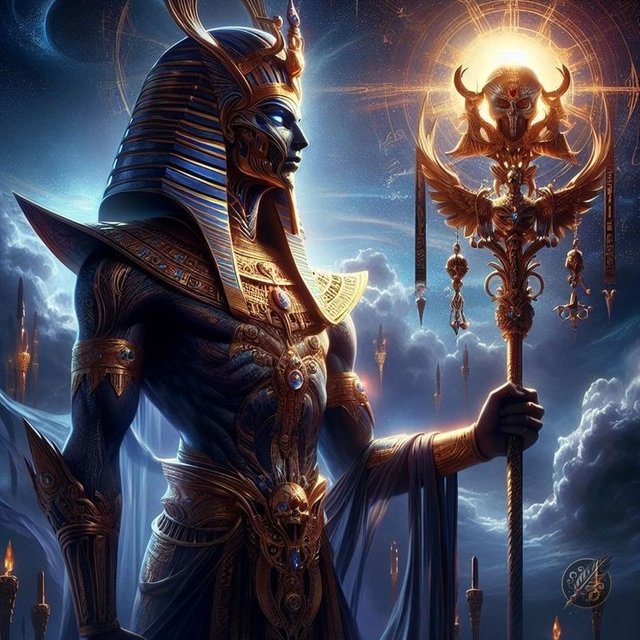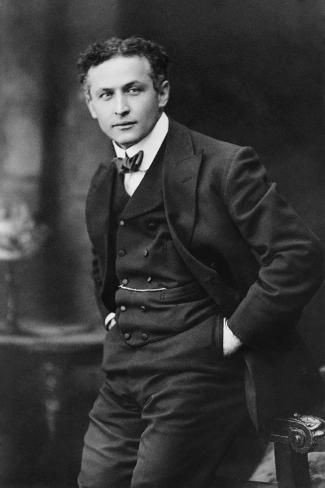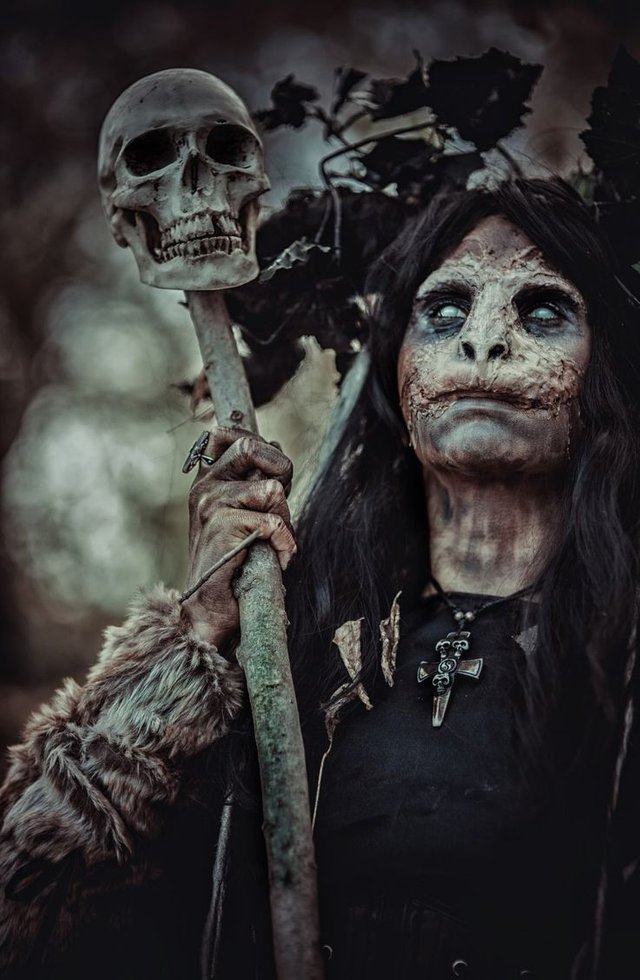Magic has fascinated human societies for thousands of years. Whether in Egypt, Greece, Babylon, or elsewhere, ancient magicians were considered powerful figures who could manipulate the forces of nature and the divine. This book explores the practices, beliefs, and roles of magicians in different ancient civilizations, offering a glimpse into their mystical world.
Magic in Ancient Egypt Egyptians are among the earliest known practitioners of magic. The ancient Egyptians believed magic, or heka, was a fundamental force of the universe, much like gravity today. It was the power that kept the cosmos in order and was essential to the practice of medicine, protection, and religious rituals.Key Magicians:Imhotep: Originally a high priest and architect, Imhotep was later deified and considered the god of medicine and magic.Isis: Although a goddess, Isis was also considered the greatest magician in ancient Egypt, known for her powers of healing and resurrection.

Illustration 1: An ancient Egyptian magician with hieroglyphic symbols around them, invoking the power of the gods. The figure could be depicted holding a staff or amulet, common tools used in Egyptian magic.
Magicians of Ancient Mesopotamia Mesopotamia, the cradle of civilization, was rich in magical traditions. Magic was often intertwined with religion, and magicians held significant roles in protecting cities and people from evil forces. They performed rituals to appease the gods or drive away malevolent spirits, often using charms and incantations.Key Magicians:Asipu: The asipu were experts in divination, especially in reading omens and interpreting dreams.Lamashtu and Pazuzu: These were spirits associated with ancient Mesopotamian magic. Lamashtu was considered a demon who harmed pregnant women, and Pazuzu, another demon, was invoked to protect people from her.

Illustration 2: A scene depicting Mesopotamian magicians performing a ritual, surrounded by ancient cuneiform tablets, magical tools, and figurines of protective deities.
Greek Magicians and the Role of Magic in Ancient Greece In ancient Greece, magic was often looked upon with suspicion, but it still played a vital role in society. Greek magicians practiced a variety of arts, from necromancy to astrology. They often invoked the gods, spirits, or even the dead for knowledge, guidance, and power.
Key Magicians:Circe: A powerful enchantress in Homer’s Odyssey, Circe was able to transform men into animals using her potions and magic.Medea: A priestess of Hecate, the goddess of magic and witchcraft, Medea was skilled in sorcery and used her abilities in both helpful and destructive ways.
Illustration 3: An ancient Greek magician performing necromancy, summoning spirits from the underworld in a temple, with eerie lights and shadows around them. The setting could include traditional Greek elements like altars and torches.
Magic and Magicians in Ancient Rome

Roman society had an ambivalent relationship with magic. On the one hand, magicians could be respected for their knowledge of the occult and healing, but they could also be condemned, especially if they were accused of black magic. Roman magicians often borrowed practices from Greece, Egypt, and Mesopotamia.
Key Magicians:Apuleius: The author of The Golden Ass, Apuleius was accused of using magic to seduce a wealthy widow. He famously defended himself in a legal trial, which remains a key historical record of how Romans viewed magic.
The Sibyls: Although not exactly magicians, the Sibyls were prophetesses who were believed to possess the power to communicate divine prophecies. Their predictions were highly respected in Roman society.
Illustration 4: A Roman magician standing in front of a lavish Roman villa, casting spells with inscriptions on wax tablets. Around the magician, we could see a mix of Roman deities and magical symbols.
The Magicians of Ancient Persia and the Zoroastrian Tradition In ancient Persia, the Magi were a priestly caste who specialized in astrology, dream interpretation, and magic. They played a crucial role in the Zoroastrian religion, often serving as advisors to kings and using their knowledge of the stars to influence political decisions.
Key Magicians:Zarathustra (Zoroaster): Although primarily a prophet, Zarathustra was also associated with divine wisdom and magical practices within Zoroastrianism.

The Magi: This priestly class is the source of the word "magic." The Magi were known for their ability to interpret the stars and perform religious rites that had magical connotations.Illustration 5: A scene of ancient Persian Magi performing a Zoroastrian fire ritual, with stars and astrological symbols in the sky. The magicians could be shown dressed in long, flowing robes, holding sacred texts.
Magicians in Ancient India and China In the ancient East, magicians were revered for their wisdom and connection to the divine. In India, magic was closely associated with Hinduism and Buddhism, while in China, Taoist magicians practiced alchemy and sought immortality through mystical means.

Key Magicians:Brahmin Priests: In Vedic traditions, Brahmin priests were responsible for performing complex rituals and sacrifices that involved elements of magic, such as invoking gods and spirits.Lü Dongbin: In ancient China, Lü Dongbin was one of the Eight Immortals of Taoism and was known for his magical abilities, especially in alchemy and swordsmanship.
Illustration 6: A mystical scene in ancient India, with a Brahmin priest performing a fire sacrifice, while heavenly beings watch from above. The image could have symbolic representations of the Hindu gods, such as Vishnu or Shiva